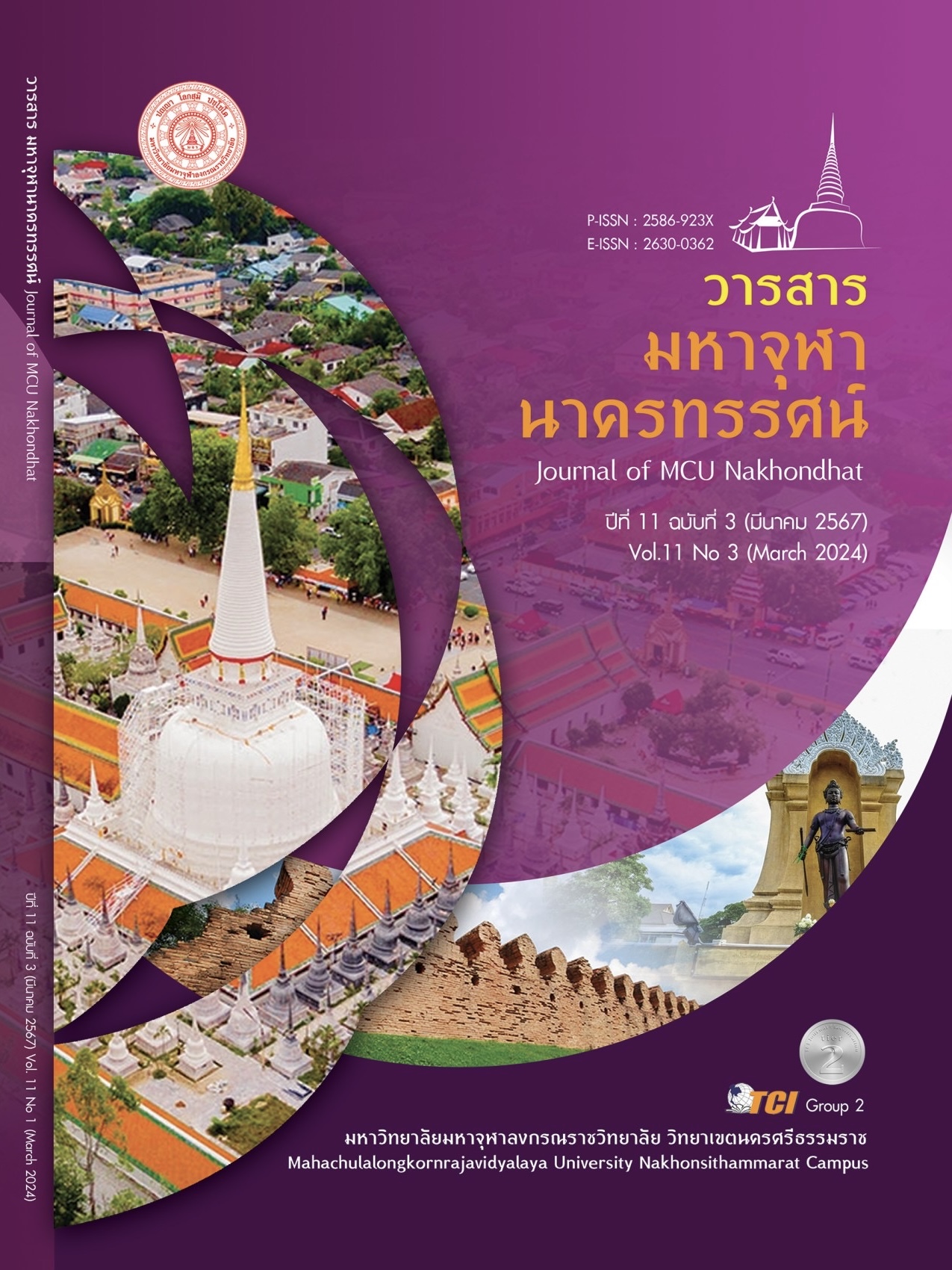VIEWERS PERCEPTIONS OF POLITICAL IDEOLOGY IN THE FILM THE HUNGER GAMES
Main Article Content
Abstract
This research article the objectives were 1) To study the presentation of political ideology in the film the Hunger Games; 2) To study the viewer's perception of a political ideology in the film the Hunger Games. It is a qualitative research divided into 2 stages: 1) Textual Analysis of all 4 movies has scenes that present the ideology of liberalism, authoritarianism, and socialism in the film's composition; 2) Group interview: Aged 18 and above must be the person who used to watch the movie The Hunger Games. The sample group came from a specific selection of 14 people to know the opinions of the viewers about what ideology and how they view it.
The results of the research found that the presentation of the ideology of liberalism, authoritarianism and socialism in the film elements is as follows: 1) Scene found that Liberal ideology uses mostly scenes to present without much dialogue; 2) Dialogue found that authoritarianism and socialism use dialogue as the main; 3) Color found that colors were used from costumes, colors from scenes, and colors from lighting; 4) Setting used scenes of the characters' lives, natural scenes, abstract environment scenes, and artificial scenes; 5) Cinema Photography found that the image size of Close Up, Medium Shot, Long Shot, Over the Shoulder and camera movement were mainly used using Hand Held. Group reviews found that most of the comments recognize the rule of power. A small part is aware of liberal ideology. Looking at the presentation to find a way out to gain freedom, the interviewer did not mention Socialist ideology, but the heroine is Mockingjay, the revolutionary representative, was not clear about her duties.
Article Details

This work is licensed under a Creative Commons Attribution-NonCommercial-NoDerivatives 4.0 International License.
References
กาญจนา แก้วเทพ. (2526). ลัทธิมาร์กซ์ของกรัมชี่. วารสารธรรมศาสตร์, 12(2),104-122.
กาญจนา แก้วเทพ. (2552). สื่อสารมวลชน:ทฤษฎีและแนวทางการศึกษา. กรุงเทพมหานคร: คณะนิเทศศาสตร์ จุฬาลงกรณ์มหาวิทยาลัย.
ธร สถิตวิทยา. (2562). ภาพตัวแทนการใช้อำนาจการครอบงำ และการต่อต้านขัดขืนในภาพยนตร์ชุด Hunger Games. กรุงเทพมหานคร: มหาวิทยาลัยกรุงเทพ.
นิพิฐพนธ์ นันทะวงศ์. (2558). การวิเคราะห์แนวคิดทางการเมืองในนวนิยายเกมล่าชีวิต. เชียงใหม่: มหาวิทยาลัยเชียงใหม่.
ประวิทย์ แต่งอักษร. (2551). มาทำหนังกันเถอะ. กรุงเทพมหานคร: ไบโอสโคป พลัส.
สรรเพชญ วงศ์ประเสริฐผล และฉลองรัฐ เฌอมาลย์ชาลมารค. (2566). กลวิธีการเล่าเรื่องและภาษาภาพยนตร์ในซีรีส์พระจันทร์มันไก่ Moonlight Chicken. กรุงเทพมหานคร: มหาวิทยาลัยรังสิต.
สุพัฒน์ ศิวะพรพันธ์. (2566). เปิดตำนาน The Hunger Gamesจากนิยายยอดฮิตสู่ภาพยนตร์ชุดที่ผู้ชมทั่วโลกหลงรัก. เรียกใช้เมื่อ 25 มกราคม 2567 จาก https://thestandard.co/the-hunger-games/
หม่อมหลวงอุสุมา สุขสวัสดิ์. (2561). รัฐกับศักยภาพของภาพยนตร์. กรุงเทพมหานคร: มหาวิทยาลัยศรีนครินทรวิโรฒ.
Harry, H. & Katharine, A. (1998). The Stage and the School. Glencoe: McGraw-Hill.
Jurairat. (2023). Synopsis of The Hunger Games: The Ballad of Songbirds and Snakes, action-fantasy movie. Retrieved March 18, 2024, from https://www.sanook.com/movie/154475/


